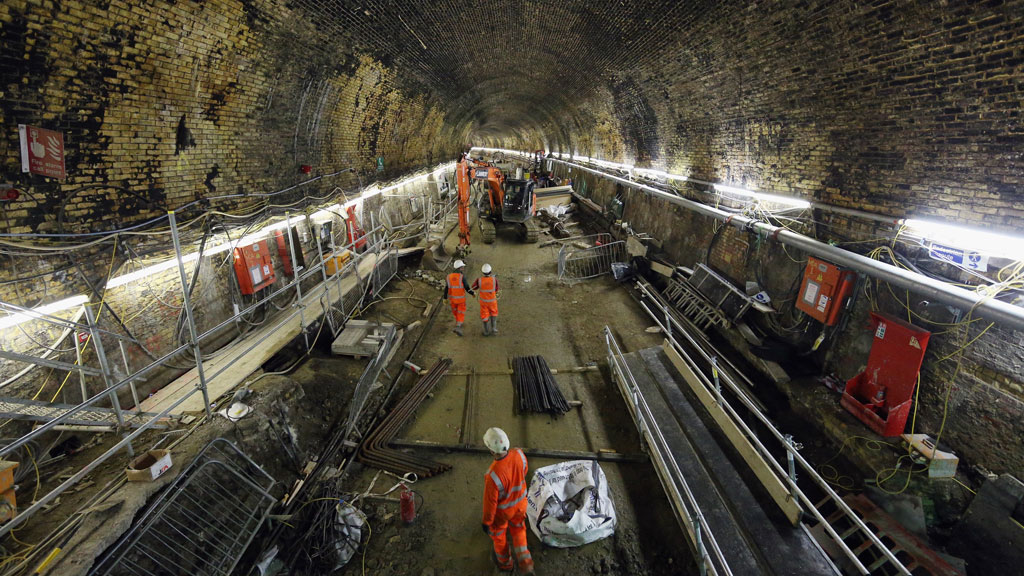IMF urges government to boost growth
The International Monetary Fund says the government should be doing more to speed up recovery in a critical assessment of the state of the British economy.
In its annual report, which puts pressure on Chancellor George Osborne, the IMF also says the government should borrow more to fund infrastructure.
This has implications for the centrepiece of Mr Osborne’s economic strategy, which is cutting the budget deficit through a programme of spending reductions and tax increases.
David Lipton, the IMF’s deputy managing director, told Channel 4 News that bringing forward its infrastructure spending plans would be “a wise course of action” for the government.
This would “not damage fiscal sustainability because of its contribution to growth” and “in the long run, it would leave the fiscal situation better”.
Mr Osborne said: “The IMF’s in-depth analysis has shown policy remedies to restore growth and rebalance the economy are not straightforward.
“There are no easy answers to problems built up in the UK over many years. It’s a hard road to recovery, but we are making progress.”

‘Long way from recovery’
The report says prospects for growth remain weak and Britain is “still a long way from a strong and sustainable recovery”.
It warns that there is a risk that persistent slow growth could “permanently damage medium-term growth prospects”.
After five years of relatively weak activity, “additional measures are needed to raise long-term expectations of potential growth”.
The chancellor has said he has no intention of changing direction and has dismissed Labour’s call for a “Plan B” to revive the economy.
The IMF also points to some encouraging signs, with “notably strong” growth in private sector employment, increased demand for vehicles, and improvements in business and consumer confidence.
Despite recent improvements, however, incomes in Britain remain 6 per cent below pre-crisis levels, “making this the weakest recovery in recent history”.
Infrastructure
It raises concerns that capital investment is proportionally at a post-war low and that youth unemployment levels are high. But the chancellor said: “I agree that it’s right to prioritise infrastructure investment where we can.
“That’s why we are investing more in capital than my predecessor had planned, that’s why I have added in the last few years to those plans and that’s why it will be a focus of the spending round next month.”
The IMF report also says austerity measures to tackle rising public debt are a “drag on growth” and a a wider strategy is needed.
The IMF backs away from its ringing endorsement of UK economic policy. But the Treasury will be relieved that it has not yet spelled out an alternative to austerity. Read Faisal Islam's blog.
The IMF backs measures unveiled by the chancellor in the March budget, along with changes to the funding for lending scheme, saying the government’s medium-term plans has earned it “credibility”.
But it says austerity “will be a drag on growth” and calls on the government to consider a range of measures, including bringing forward planned capital investment to fuel growth and reviewing business taxation.
It says paying for these measures could be accomplished by extending VAT and reforming property taxes.
House prices
But it raises concerns over the government’s help to buy scheme, announced in the budget, suggesting there is a risk it could lead to higher house prices.
Shadow chancellor Ed Balls said: “Behind the diplomatic language, this is the call for action on jobs and growth that the IMF has been threatening to deliver for many months and a stark warning of the consequences if the chancellor refuses to listen.
“They say, as we have, that you need to strike a balance between the pace of fiscal consolidation and support for growth and jobs, and it is clear that the government has not got that balance right.”